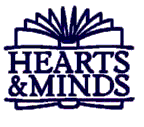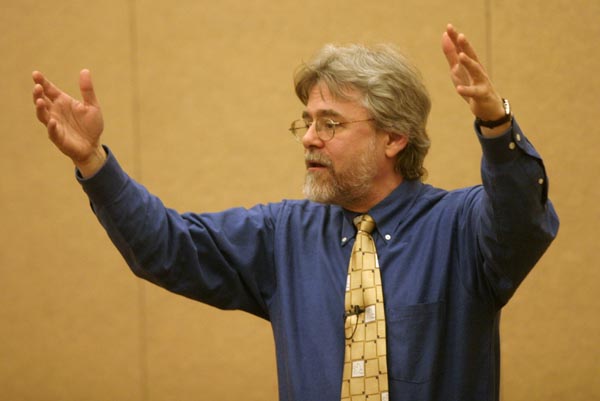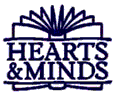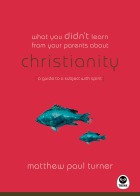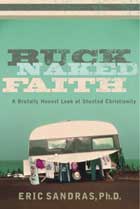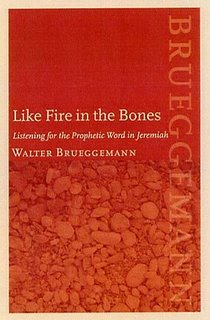A few weeks ago I sat through an otherwise adequate sermon, by a hip pastor at a progressive church. Said pastor called us properly to commitment, and used as examples, involvement in church stuff. Even a rousing litany of how to hear God's call upon our lives was exclusively about being a Sunday school teacher, deacon, committee member, etc. Such blatant disinterest in the callings of laypeople to serve the Lord of creation in the world outside of the church walls is almost surely a result of a bad view of creation, culture and work. When she cited the old heretical hymn "Turn your eyes upon Jesus"---you know, the one that stupidly says that "the things of Earth will grow strangely dim" I was sure that the pastor's worldview was fundamentally dualistic, which is to say unbiblical and problematic.
Well, I wonder how many church folks got good Labor Day sermons yesterday? I did not, even though my pastor could have done so; he has often cited the fabulous
Heaven Is Not My Home: Living in the Now of God's Creation by Paul Marshall, in sermons that deal with work, social action or living faithfully in the world of commerce, culture or entertainment, and is not unaware of this topic. Still, I feel slighted too often when our litanies and hymns, praise songs and prayers, don't bring the duties and delights of work, citizenship, cultural and social involvements before the Throne of Grace. Do you sometimes feel like that? Like the bumpersticker which reads "If you're not alarmed, your not paying attention", I'd say if you don't yearn for more whole-life teaching, more prayers for the marketplace, more encouragement to bridge faith and culture, more applications of Sunday teaching for Monday obligations---you either go to a very exceptional church or "your not paying attention."
To wit:
1. Please take a glance if you haven't at our bibliography over at the website called
"Books By Vocation." Where else can you find descriptions of basic books to offer Christian insight for so many fields of endeavor? From business to education, science to the arts, engineering to politics, we've put together this beginniner's guide to developing a Christian perpsective for your work.
2. Why not recommend such books to your small group, Sunday school class, fellowship or church library? Why not consider a book group at your own workplace, using, for Christians, a basic book on work such as
Your Work Matters to God by Hendricks & Sherman (NavPress; $15) for instance, or John Beckett's
Loving Monday or his new and very nice-looking
Mastering Monday (both IVP) or the essential, foundational book on vocation,
The Call: Finding and Fulfilling the Central Purpose of Your Life by Os Guinness (Word; $17.99.) (The study guide in the back of the paperback makes it very useful.)
We have plenty of books on this topic, from nearly every denominational perspective, of varying lengths, levels and prices. For instance, we even have a hard-to-find, fabulous, brief collection of pieces that were delievered at a conference in Ontario, complete with responses and the fascinating transcript of the panel discussion held that day.
Work & Leisure in the Life of a Christian (Burlington Reformed Study Centre; $7.95) was edited by Cornelis Van Dan & Kristen Kottelenberg Alkema and is very good. Our good friend and H&M cheerleader
Gideon Strauss has a great chapter, as does his colleague from the Work Research Foundation, Ray Penning, and others.
3. Ask us about books that are not explicitly Christian, but that could be used in a general reading group, raising these questions. For instance, we stock
Joy At Work: A Revolutionary Approach to Fun on the Job by Dennis Bakke. (PVG; $24.95.) It carries prestigious endorsements---Peter Block, Jack Kemp, Bill Clinton---and is, as you might hope, a fun book. Or, consider the moving and thoughtful
Forgetting Ourselves on Purpose: Vocation and the Ethics of Ambition by Brian J. Mahan (Jossey-Bass; $19.95.)
I know we've mentioned before the fabulous book by David Batstone (who writes for
Sojourners ) called
Saving the Corporate Soul And (Who Knows) Maybe Your Own (Jossey-Bass; $24.95.) We have long carried the two books that Gideon has been blogging about, too, by David Whyte, who uses poetry to get at the deeper meaning of work in our lives. We especially recommend
Crossing the Unknown Sea: Work as a Pilgrammage of Identity (Riverhead; $15) and his lovely
The Heart Aroused:Poetry and the Preservation of the Soul in Corporate America (Currency; $15.95.) Speaking of which: Wendell Berry has written often about work, including the hard kind of physical labor, and has poetry about it.
4. As you think about your own spiritual journey, as many of us do this time of year, it seems, reflect on how your piety and prayers shape (or are shaped by) your primary callings and career. Look out for forms of spirituality that don't connect to the real world. Celebrate and promote those that do. Just for instance, what a delight to find a book which I presumed to be exclusively "inward" about "centering prayer"---the new
The Centered Life by Jack Fortin (Augsburg Fortress; $9.99)---to be as much about work, career, calling, family and our civic obligations as much as the solitary experience of prayer and meditation. Struggling to "balance" different aspects of your life? Fortin suggests a different metaphor, one of a
centered life. Very nice.
5. Find ways to engage your own pastoral leadership with this vision. I'm reading a wild homiletics book where the preacher hangs out, literally, with various workers in her congregation, to get a workworld take on the Scripture from which she will preach each week. It is a odd combo of a variety genres, but her story of driving around on a bull-dozer with a logger in her rural congregation was just wonderful. See:
Prepare a Road! Preaching Vocation, Community Voice, Marketplace Vision by Kim L. Beckmann (Cowley; $15.95.) Preaching teacher extraordinaire David Schlafer notes how she brings together the work of Mary Catherine Hilkert, Nora Tubbs Tisdale, Lucy Rose and Barbara Brown Taylor. If these names of authors of homiletics texts mean anything to you, you'll know what he means.
More evangelical and clear is
Lasting Investments: A Pastor's Guide for Equipping Workplace Leaders to Leave a Spiritual Legacy by Kent Humphreys (NavPress; $11.99.) Former President of IVCF and current professor of evangelism at Columbia Theological Seminary, Stephen Hayner says of it, "Explosive! This book is not only on my A-list for pastors, but also for those who know that they are called to make a difference in their work worlds." Would that many pastors would realize the strategic importance of their calling to equip layfolks to serve faithfully in their own varied and sundry jobs and callings. Hayner puts it on his "A-list for pastors" but I wonder how many have even heard of it?
6. Even if you aren't the sort that strikes up conversations or internet partnerships around these kinds of things, at least click on a few of our favorite sites that promote work-world reformation and say a prayer for them. (Better, cut and paste their addresses and send 'em out to those who would find it interesting.) There is so much dumb stuff on the internet, and the guys that rant are so popular... we have to keep these kind of important, rare, voices alive!
Check out the
Work Research Foundation, a think tank with affliations to the Christian Labour Association of Canada (and subscribe to their wonderful weekly e-zine,
Comment. It is among my few essential internet sources.) I've even written for
Comment in a series they did about how to make the most of college. Don't hold that against them, though, as they are usually really, really smart.
Please visit Redeemer Presbyterian (in Manhattan) and their
Center for Faith and Work. Again, we are glad to know of churches who take up this project of ministering to those in the workworld and think that the work of the Center is a helpful resource and model.
My dear, dear friend Steve Garber doesn't usually speak in specific detail about various job sites, the particulars of work or different careers. But he, better than anyone we know, burns with a yearning to have followers of Jesus "weave together belief and behavior" (see his
Fabric of Faithfulness) in meaningful ways that sustain fidelity across the whole of life. His wonderous attentiveness to those who are asking big quesitons about integrity in their vocations is not cheap or simplistic; I'm glad his
Washington Institute offers essays, articles, interviews and stories about his good conversations.
I don't know much about Mike McLoughlin, but his
Faith at Work blog is a good introduction to the various kinds of things being talked about in this movement. Mike Metzger is one of the sharpest contributors to speaking of faith in a secularized corporate culture, and his passion for a relevant and effective impact is behind his good work at the
Clapham Institute. I love his occasional email essays, and encourage you to sign up for them!
And, while praying and supporting these noble marketplace pioneers, give thanks for your job, if you have one, and for the unemployed and those who are employed with frustrating places. And, of course, for all the work that is done that isn't officially done as a paying job. May we all "practice the presence of God" as we dry dishes, mow lawns, care for our children and do our daily marketing. Happy Labor Day.

